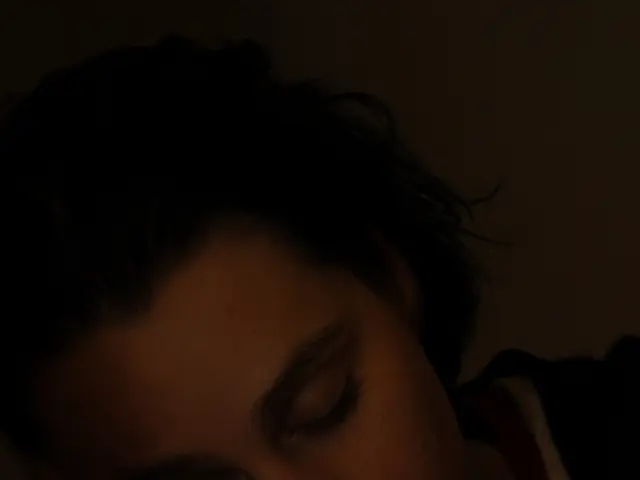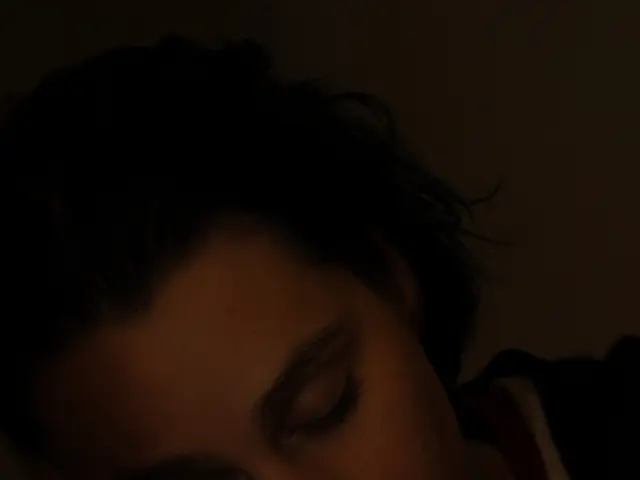The Mysterious Neuroscience Behind the Malicious Counterpart of Déjà Vu: Jamais Vu
Walking into your kitchen, you're confronted with an odd sensation - everything feels oddly unfamiliar. It's not amnesia; you've been here before. You know it, right? But your brain whispers, "This isn't familiar at all." What's going on here? You've stumbled upon jamais vu - the lesser-known cousin of deja vu.
This strange phenomenon is when the familiar becomes foreign, reality gets weird, and you question everything you know. Here, we dive into the why, the how, and what it means for our understanding of the brain.
What exactly is Jamais Vu?
Jamais vu (French for "never seen") is a feeling of unfamiliarity with something that should be well-known. Unlike amnesia, your memories don't disappear; you just lose that strong sense of familiarity.
Common examples of Jamais Vu:
- Staring at a common word until it loses all meaning (like 'door', 'the', or 'table')
- Feeling disoriented in a familiar place
- Hearing your own name and thinking it's foreign
This eerie feeling is typically brief, disappearing within seconds, but it leaves you feeling disoriented nonetheless.
Dejá vu vs. Jamais Vu:
"Already seen"
These two sensations might seem related, and they are, but they have distinct differences.
| Dejá vu | Jamais Vu || --- | --- || "Already seen" | "Never seen" || New experience feels familiar | Familiar experience feels new || Triggered by novelty | Triggered by repetition || Often linked to memory misfires | Often linked to attention or fatigue |
"Never seen"
Both disruptions in the brain's familiarity recognition system, but they pull perception in opposite directions. Dejá vu makes new experiences seem familiar; jamais vu does the opposite.
What causes Jamais Vu?
While the precise cause isn't yet fully understood, researchers believe jamais vu originates from a temporary glitch in familiarity processing. Your brain recognizes something on a cognitive level, but the emotional or perceptual recognition doesn't activate correctly.
New experience feels familiar
Factors that may trigger Jamais Vu:
Familiar experience feels new
- Repetition: Repeating a word or action frequently can make it feel foreign
- Fatigue or stress: When cognitive load is high, recognition systems may falter
- Temporal lobe disruption: Malfunctions in the region responsible for memory and recognition might play a role
- Minor dissociation: Your brain briefly disconnects perception from memory
Is Jamais Vu Dangerous?
Generally, no. Jamais vu is a fleeting, harmless phenomenon. However, if it happens frequently, lasts more than a few minutes, interferes with normal function, or occurs with seizures, headaches, or blackouts, it may warrant medical attention.
Triggered by novelty
The Cognitive Role of Feeling "Unfamiliar"
Triggered by repetition
So, what good could jamais vu possibly serve? Researchers suggest it's a form of "mental quality control." When your brain detects too much routine, too many assumptions, or potential errors, it may trigger a "reset" moment - a perception refresh.
Can Nootropics Help Perception and Cognitive Clarity?
While nootropics won't eliminate all brain idiosyncrasies (and you wouldn't want them to!), some compounds may help support mental clarity, memory stability, and sensory integration, especially under stress or fatigue.
Often linked to memory misfires
Nootropics that may help:
Often linked to attention or fatigue
- Citicoline: Enhances attention and memory recall under cognitive strain
- L-Theanine: Relaxes the nervous system, improving sensory clarity
- Bacopa Monnieri: Aids recognition and memory consolidation
- Lion's Mane Mushroom: Promotes neuroplasticity and long-term cognitive resilience
These substances may help reduce disorientation and improve overall processing, especially during times of stress, sleep disruption, or mental fatigue.
Jamais vu is your brain's way of hitting the emergency brake on familiarity. It reminds us that perception isn't just what we see but what we recognize. When that recognition falters, even for a moment, we're forced to re-experience the world from a strange, new angle. So, the next time everything feels oddly unfamiliar, remember you're just catching your brain in one of its weirdest, most fascinating moments of recalibration.
- The sensation in your kitchen, where everything feels strangely unfamiliar, is a case of jamais vu - a feeling of unfamiliarity with something known.
- Unlike amnesia, your memories remain intact in dla unterschieden von deren Kenntnis, but the strong sense of familiarity disappears.
- New experiences can feel familiar due to a phenomenon called deja vu, while familiar experiences can feel new due to lors.
- Jamais vu is thought to be caused by a temporary glitch in familiarity processing in your brain, leading to a disconnect between cognitive and emotional recognition.
- Triggers for Jamais vu can include repetition, fatigue or stress, disruptions in the temporal lobe, and minor dissociation.
- Although Jamais vu is generally harmless, frequent occurrences, prolonged instances, or instances accompanied by symptoms such as seizures, headaches, or blackouts may warrant medical attention.
- Researchers suggest that Jamais vu serves as a form of "mental quality control," resetting perceptions and improving cognitive clarity during moments of routine or potential errors.
- Certain nootropics such as Citicoline, L-Theanine, Bacopa Monnieri, and Lion's Mane Mushroom may help improve mental clarity, memory stability, and sensory integration, potentially reducing instances of jamais vu during times of stress, sleep disruption, or fatigue.








